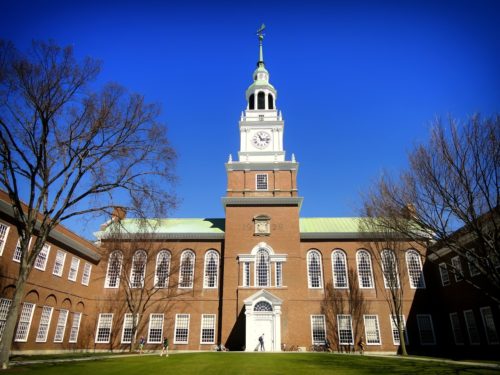
Universities have long been spaces for political discourse, debate, and activism. But in today’s polarized climate, students, faculty, and staff may wonder if expressing political views on campus can lead to serious consequences like expulsion or termination. If you are facing disciplinary action for political speech, it is essential to understand your rights and potential legal protections. Read on and reach out to the higher education lawyers here at Allen Harris to learn whether you can be expelled or fired for political speech at your university. Here are some of the questions you may have:
Do Students Have First Amendment Protections for Political Speech?
At public universities, students’ rights to free speech are protected under the First Amendment. This means that public institutions cannot punish students simply for expressing political opinions, whether in person, on social media, or through campus activism.
However, free speech does have limits. Universities can impose content-neutral restrictions on the time, place, and manner of speech. This means that while you have the right to express political opinions, your university can set rules about when and where demonstrations can take place, so long as those rules apply equally to all viewpoints.
For students at private universities, the situation is different. Private institutions are not bound by the First Amendment in the same way as public schools. Instead, your speech rights depend on the university’s policies and any agreements made between students and the institution. If a private university promises free expression in its student handbook, it may be contractually obligated to uphold those rights.
Can Faculty or Staff Be Fired for Political Speech?
Professors and university employees face a different set of challenges when it comes to political speech. Public university faculty are protected under the First Amendment, but those protections are limited when speech is part of their official job duties. In Garcetti v. Ceballos (2006), the Supreme Court ruled that public employees do not have First Amendment protection for speech made as part of their official duties – but it left open the question of whether the ruling applies to professors’ speech related to teaching and scholarship. As a result, public university professors’ free speech rights vary depending on the jurisdiction. If faculty members are speaking as private citizens on matters of public concern, they have stronger legal protections.
For private university employees, contractual agreements and university policies determine speech rights. While some institutions may explicitly protect academic freedom, others may have policies that restrict certain types of political speech. Faculty who speak out on controversial issues should review their employment agreements and university policies to understand their rights.
What Are the Limits of Political Speech on Campus?
While students and faculty have speech rights, not all political expression is protected. Schools can discipline individuals for speech that constitutes:
- True threats or incitement: Speech that directly encourages violence or imminent unlawful action is not protected under the First Amendment.
- Harassment or discrimination: Speech that targets individuals based on race, gender, or other protected characteristics to the point of interfering with someone’s educational opportunities may violate university policies or anti-discrimination laws.
What Should You Do If Your Speech Rights Have Been Violated?
If you have been expelled, suspended, or fired for political speech, you should take immediate steps to protect your rights. Review your school’s policies, document any disciplinary actions, and consider seeking legal counsel. A free speech attorney can help assess whether your rights have been violated and what legal remedies may be available.